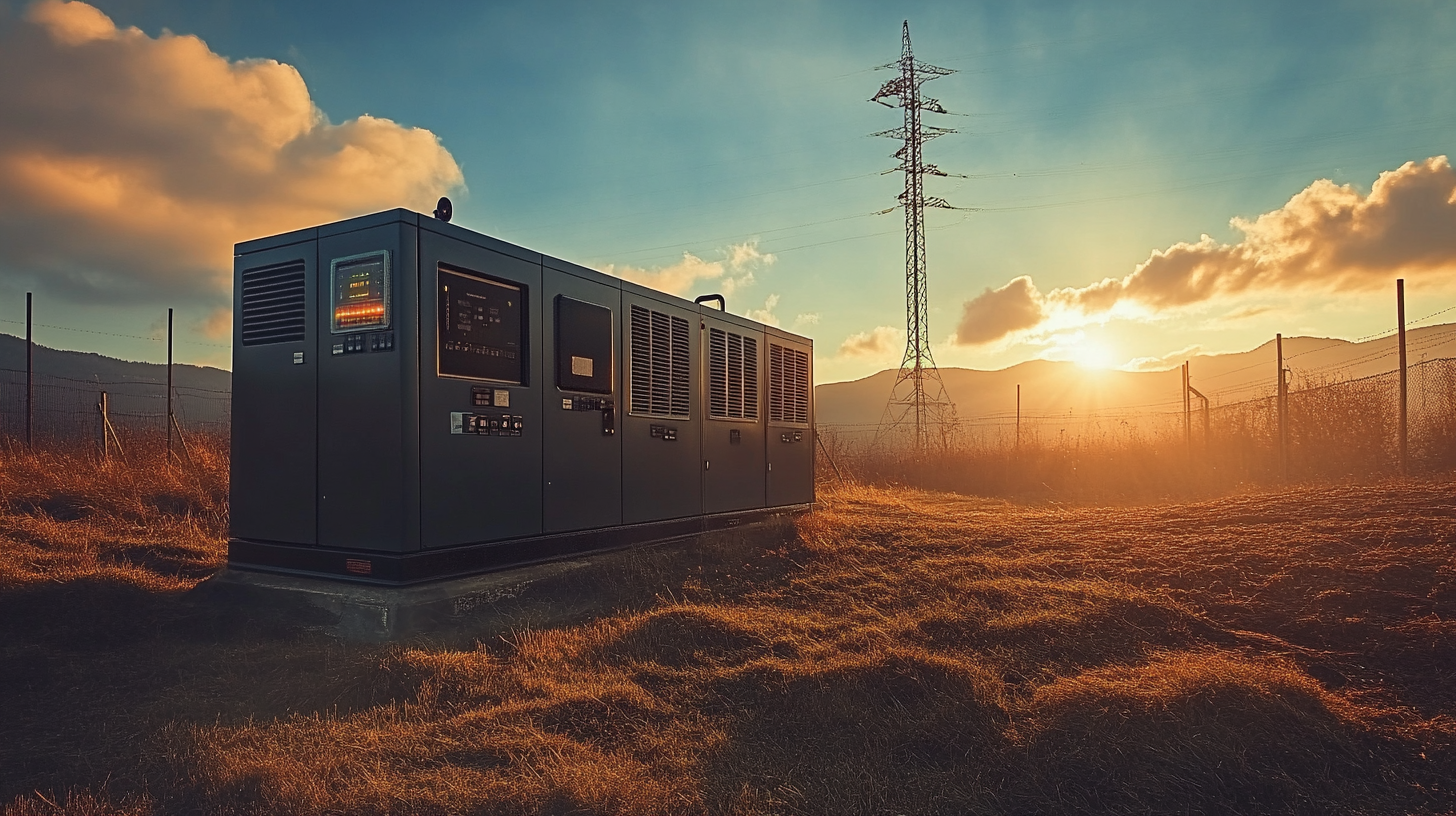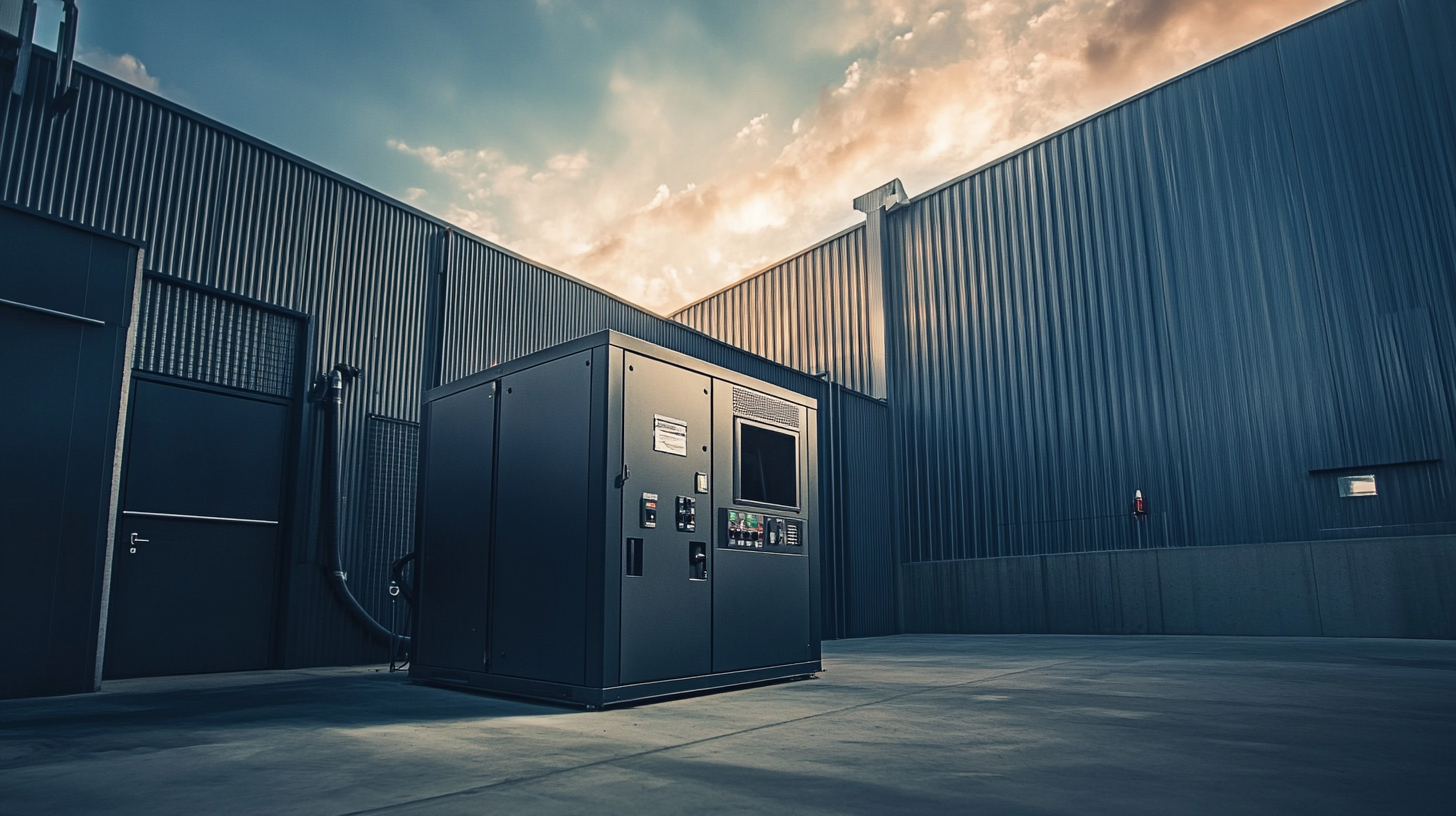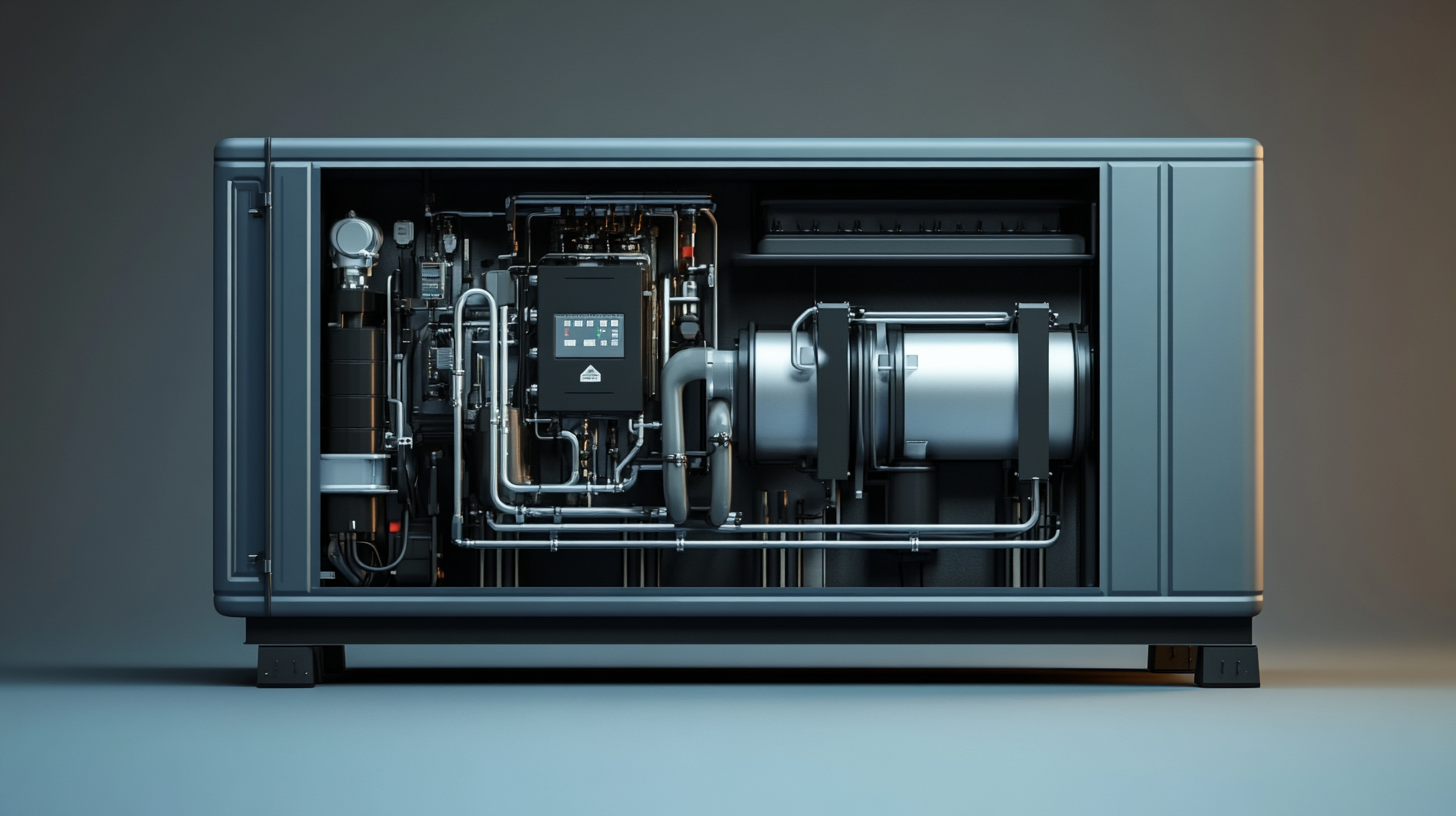
-
Home
-
Products
-
Service
-
About Us
-
Solution
-
Videos
-
News
-
Contact Us
Leave Your Message

In an age where reliable power supply is crucial for both residential and commercial applications, the demand for standby diesel generators has surged dramatically. According to a recent market report by ResearchAndMarkets, the global diesel generator market is projected to reach $25.8 billion by 2027, illustrating a compound annual growth rate (CAGR) of 6.1% from 2020 to 2027. This growth is driven by the increasing need for uninterrupted power solutions, especially in regions prone to grid failures or natural disasters. Standby diesel generators serve as a critical backup, ensuring that essential services and operations continue without disruption. In this blog, we will explore the 7 best standby diesel generators that exemplify reliability, efficiency, and performance, catering to various power needs and preferences.

When selecting a standby diesel generator, it's essential to consider key features that influence performance and reliability. One critical aspect is the generator's fuel efficiency. According to the U.S. Energy Information Administration (EIA), diesel generators can achieve fuel efficiencies of up to 37%, significantly higher than their gasoline counterparts. This not only translates to lower operational costs but also less frequent refueling, enhancing convenience during prolonged power outages.
Another vital feature is the generator's power output and capacity. The National Electrical Manufacturers Association (NEMA) emphasizes the importance of matching generator capacity with the expected load to prevent overloads and ensure seamless operations. For residential use, a generator with a capacity ranging from 7kW to 20kW is typically adequate, whereas commercial applications may require units exceeding 50kW. Additionally, advanced technologies such as automatic transfer switches (ATS) are crucial for enabling a quick response to power interruptions, ensuring that essential systems remain operational without manual intervention.
| Model | Power Output (kW) | Fuel Tank Capacity (gallons) | Runtime at Full Load (hours) | Noise Level (dB) | Weight (lbs) |
|---|---|---|---|---|---|
| Model A | 20 | 60 | 12 | 68 | 450 |
| Model B | 25 | 75 | 10 | 70 | 500 |
| Model C | 30 | 80 | 8 | 72 | 600 |
| Model D | 35 | 100 | 7 | 75 | 800 |
| Model E | 40 | 120 | 6 | 77 | 900 |
| Model F | 50 | 150 | 5 | 80 | 1100 |
| Model G | 60 | 200 | 4 | 82 | 1300 |
 When it comes to selecting a standby power solution, diesel generators offer several advantages over other fuel types, making them a popular choice for both residential and commercial applications. One of the primary benefits of diesel generators is their fuel efficiency. Diesel fuel has a higher energy density compared to gasoline or propane, meaning that they can produce more power per gallon consumed. This efficiency translates to longer run times between refueling, making diesel generators ideal for long-duration power outages or remote operations.
When it comes to selecting a standby power solution, diesel generators offer several advantages over other fuel types, making them a popular choice for both residential and commercial applications. One of the primary benefits of diesel generators is their fuel efficiency. Diesel fuel has a higher energy density compared to gasoline or propane, meaning that they can produce more power per gallon consumed. This efficiency translates to longer run times between refueling, making diesel generators ideal for long-duration power outages or remote operations.
Another significant advantage is the durability and reliability of diesel engines. Diesel generators are designed to withstand more demanding conditions and tend to have longer lifespans than their gasoline counterparts. They can operate effectively in extreme temperatures, which is particularly beneficial for users in harsh climates. Additionally, diesel engines typically require less maintenance due to their robust construction and design. This lower maintenance requirement not only saves time but also reduces long-term operational costs, further enhancing the value of diesel generators as a reliable power solution.
When selecting a standby diesel generator, proper sizing is crucial to ensure reliable power delivery during outages. The first step is to assess your power requirements by calculating the total wattage of the appliances and systems you intend to support. This includes everything from essential lighting and HVAC systems to more significant loads like refrigerators or medical equipment.
It's important to consider both starting and running wattages, especially for devices with motors that require additional power at startup.
Another critical consideration is the generator's fuel capacity and consumption rate. Standby diesel generators typically offer extended run times, but understanding how much fuel your unit will consume under load is vital. Additionally, ensure that the generator’s output matches your electrical infrastructure's requirements—check voltage and phase compatibility.
Finally, factor in possible future expansions or upgrades in your electrical system, allowing for some overhead capacity to accommodate additional power needs without compromising performance during peak demands.
Regular maintenance is crucial for ensuring the longevity and reliability of your diesel generator. One of the primary steps in this process is consistent oil changes. Diesel engines operate at high temperatures, which can lead to the breakdown of oil over time. Changing the oil and oil filter according to the manufacturer’s recommendations not only enhances engine performance but also reduces wear and tear, thus extending the life of your generator.
Another important aspect of maintenance is keeping the fuel system clean. Contaminated fuel can cause significant damage and inefficiency in diesel generators. Therefore, regularly inspecting and replacing the fuel filters, as well as using high-quality fuel, can help maintain optimal performance. Additionally, ensuring that the air intake and exhaust systems are free of obstructions will enhance airflow, which is essential for efficient combustion and cooling. By following these maintenance tips, you can ensure that your diesel generator remains a reliable power source for years to come.
When considering a standby diesel generator, budgeting is a crucial aspect that influences your choice. The initial cost of a generator can be alarming, but it’s essential to weigh this against its long-term value. A higher upfront investment may lead to enhanced durability, reduced maintenance costs, and greater efficiency, potentially saving you money in the long run. Each generator model is unique in terms of fuel consumption, power output, and operational lifespan, so evaluating these factors will help you determine the right financial commitment for your needs.

Additionally, consider the total cost of ownership, which includes installation and ongoing fuel expenses. Investing in a quality standby diesel generator can provide reliable power - especially during outages, minimizing disruption to your daily life or business operations.
Make sure to assess the generator's warranty and customer support as part of your budget. Opting for a well-regarded brand may come with a higher price tag, but the peace of mind and reliability it offers can significantly enhance your overall satisfaction and security in power solutions.